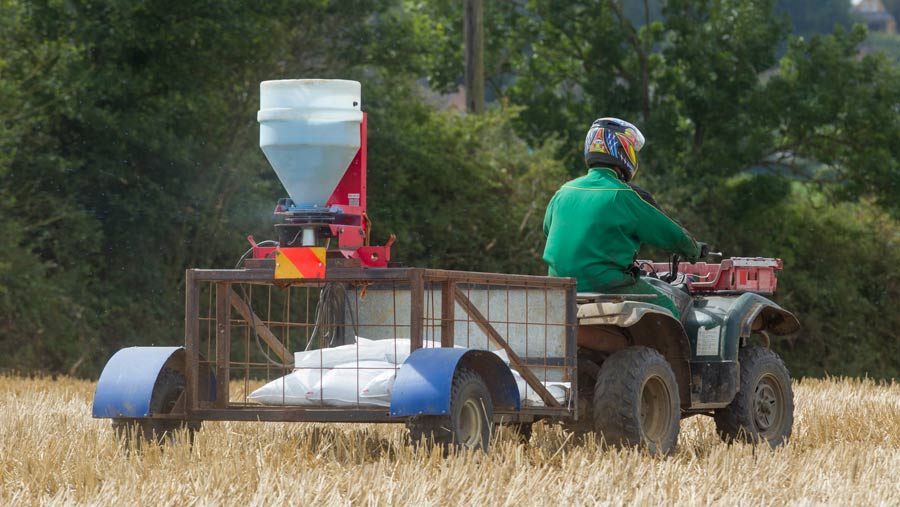Growers asked to use metaldehyde responsibly this autumn
 © Tim Scrivener
© Tim Scrivener Growers applying soon to be banned metaldehyde slug pellets to cereals or potatoes are being urged to use the chemical responsibly to avoid a spike in water pollution cases.
From 1 April 2022 it will be illegal to sell and use metaldehyde slug pellets in Great Britain. However, distributors can still sell stocks that can be used up until this date.
Water companies are concerned that some growers have large amounts of metaldehyde stored in their sheds and will seek to use up any remaining stocks before the deadline, rather than pay for disposal or use other products, such as ferric phosphate pellets.
See also: Wet weather sparks slug warning for early OSR crops
Some water companies, including Anglian Water and Welsh Water, are offering free disposal of surplus metaldehyde pellets. Growers are being urged to check what their local water companies have to offer.
With slug pellet applications imminent, the agricultural industry is being reminded that although product labels remain unchanged, enhanced metaldehyde stewardship guidelines apply to all treatments this autumn.
Industry body the Metaldehyde Stewardship Group (MSG) was set up in 2008 to promote responsible use of metaldehyde slug pellets.
MSG chairman David Cameron said: “Responsible use of pellets right up until the end of the use-up period is essential to help stop metaldehyde reaching watercourses in all areas of the UK, especially in drinking water catchments.”
Dr Cameron highlighted key stewardship steps to follow. “First, with the view of helping to minimise slug infestations and reduce the need for treatment, metaldehyde slug pellets must only be used as part of a wider, integrated, pest management programme,” he said.
“Factors such as soil and stubble management, planting methods, weather, trapping and monitoring should all be considered as part of slug control programmes.”
Field-by-field assessment
Growers should also take a field-by-field approach to assessing the risk of metaldehyde reaching watercourses.
“Think ‘soil, slope and stream’. Your field’s soil type, topography and proximity to a water course are all key to understanding whether applications could impact drinking water quality,” he said.
If metaldehyde treatments are necessary, Dr Cameron said it was imperative that growers adhered to the full set of MSG guidelines.
“These state that metaldehyde-based slug pellets should not be applied if drains are flowing or heavy rain is forecast, and no pellets should be allowed to fall within a minimum of 10m of any field boundary or watercourse.”
Last September, Defra announced a ban from April 2022 on the use of metaldehyde on farms and in gardens, except in permanent greenhouses, “in order to better protect wildlife and the environment”.
MSG metaldehyde stewardship guidelines
- No pellets to be allowed to fall within a minimum of 10m of any field boundary or watercourse
- Use minimum active/ha to avoid drainage and run-off losses
- Maximum total dose from 1 August to 31 December: 210g/ha. For additional protection of water, suppliers/Basis advisers may recommend rates reduced to 160g/ha or less
- Maximum total dose rate: 700g/ha/calendar year
- Do not apply when heavy rain is forecast
- If drains are flowing, do not apply metaldehyde-based slug pellets

